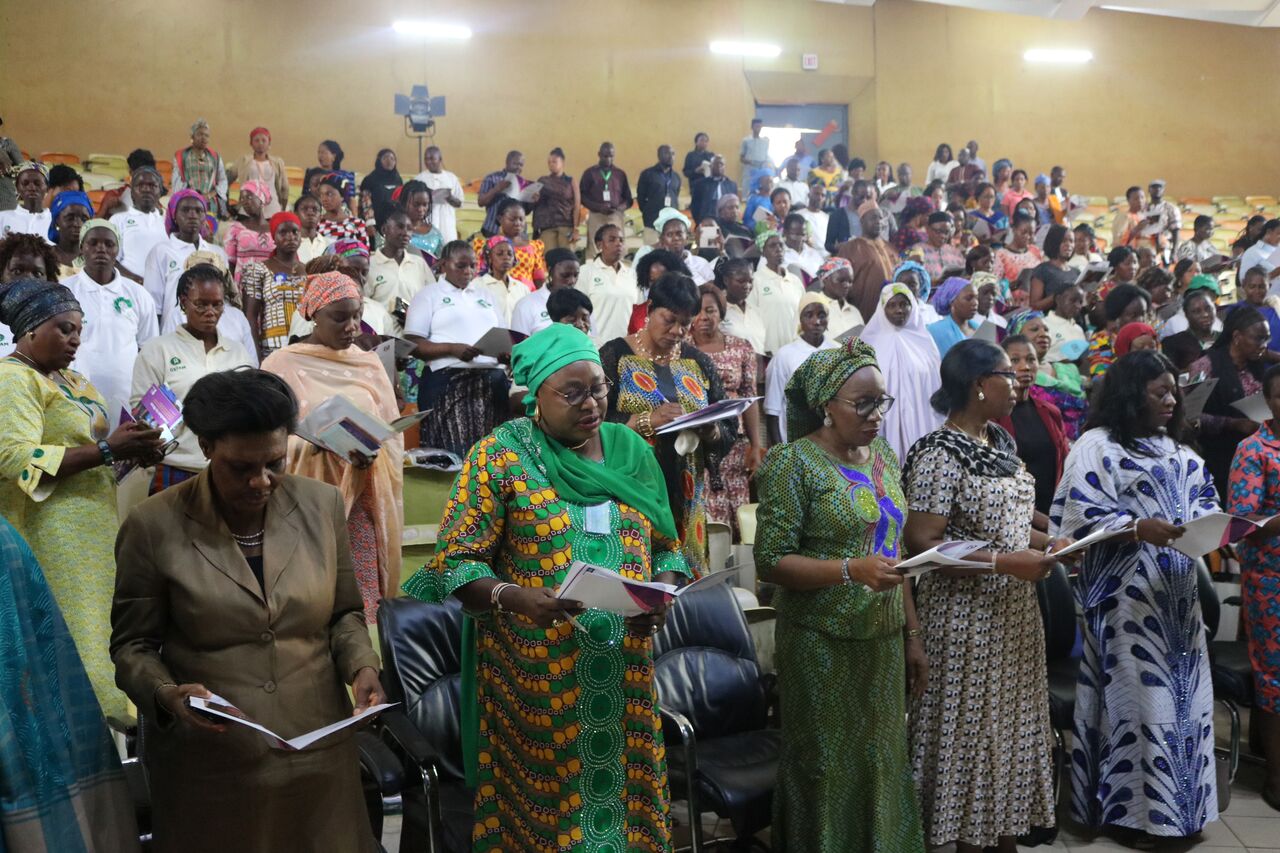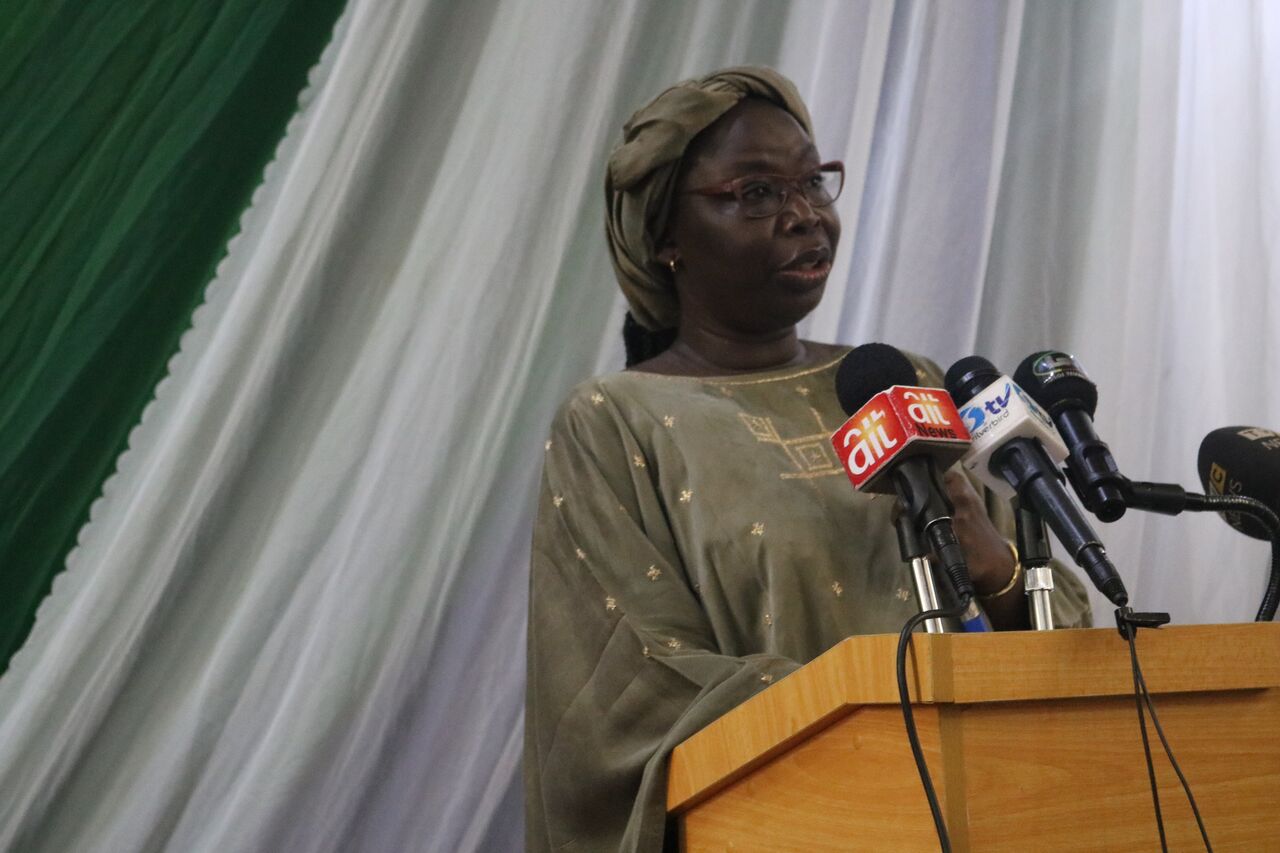UN Women and development partners in Nigeria make a case for women in the work place
Date:
Nations across the globe have marked this year’s celebration of the International Women's Day on the theme of “Women in the Changing World of Work: Planet 50-50 by 2030”. The commemoration of International Women's Day presents an opportunity to continue to challenge Gender Inequality - a situation that robs women of opportunities and denies the world the unique contributions, intuitions and potentials inherent in women. It is a day set aside by the United Nations to call for the elimination of persisting inequalities which negates the opportunity for women to participate equally with men in social, political and economic life.

The Minister of Women Affairs, Ms Alhajia AISHA ALHASSAN, highlighted in her address that the under-representation of women in governance was hampering economic growth and development in the country. Her remarks were delivered by Ms. Phylis Nwokedi, Permanent Secretary of the Ministry, who also advocated for increased opportunities for women in decision making positions, high level political offices, and workplaces, both in public and private sectors.

In her message, UN Women Executive Director Phumzile Mlambo-Ngcuka called for the construction of a different world of work for women. “As they grow up, girls must be exposed to a broad range of careers, and encouraged to make choices that lead beyond the traditional service and care options to jobs in industry, art, public service, modern agriculture and science”
“Across the world, too many women and girls spend too many hours on household responsibilities—typically more than double the time spent by men and boys. They look after younger siblings, older family members, deal with illness in the family and manage the house. In many cases this unequal division of labour is at the expense of women’s and girls’ learning, of paid work, sports, or engagement in civic or community leadership”. Ms. Mlambo-Ngcuka reaffirmed in her message that achieving equality in the workplace will require an expansion of decent work and employment opportunities, involving governments’ targeted efforts to promote women’s participation in economic life, the support of important collectives like trade unions, and the voices of women themselves in framing solutions to overcome current barriers to women’s participation.
Ms. Evelyn Mere who spoke on behalf of Oxfam in Nigeria, praised the strength, tenacity, resilience, contributions, and achievements of Nigerian women. She called on the Government of Nigeria to demonstrate political will to create a macro-economic policy environment that increases women's productive capacity as full economic agents, as well as to increase investments in the agricultural sector and create special incentives targeted at women to enhance economic opportunities, productivity and women's incomes.Wife of the Senate President and Founder of the Wellbeing Foundation, Ms. Toyin Saraki, made case for internally displaced women and girls and called for prompt action to prevent them from turning to sex toys just to obtain the basic things of life.
It is estimated that 70% of Nigerians live below the poverty line, with women constituting the majority of the poor at 80%. About 54 million of Nigeria's estimated 78 million women live in rural areas and predominate in the agricultural Sector, working and earning their living off the land. Research has revealed that although women represent between 60 and 79% of Nigeria's rural labour force, men are five times more likely than women to own land. Some 55% of female-headed households are landless and a further 29% own less than one hectare Outside the agricultural sector, the majority of women are concentrated in casual, low-skilled, low paid informal sector activities as workers, petty traders, small-scale producers, service providers amongst other areas. Most live on starvation wages that make it difficult to feed their families and educate their children. Working and surviving under very challenging conditions, they are also usually the first point of contact for local tax officials who harass, extort and intimidate them in their communities.
Only 30% women occupy top public sector managerial positions. Most women are relegated to poorly-paid jobs performed under precarious conditions.
The 2017 International Women’s Day, offers yet another opportunity to raise issues around gender inequalities in Nigeria and the urgent need for Government and other relevant bodies to take action to ensure a gender equal society.